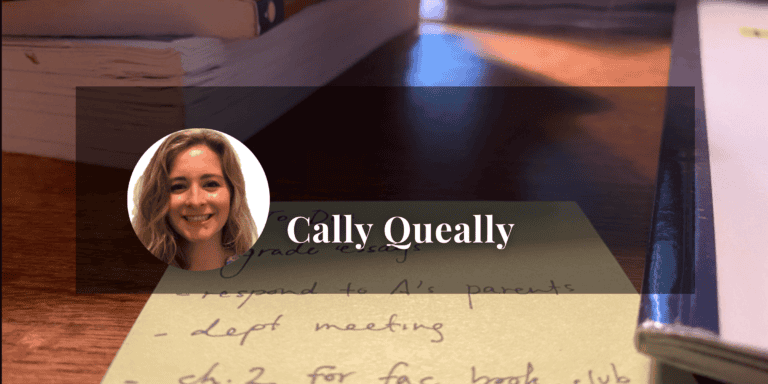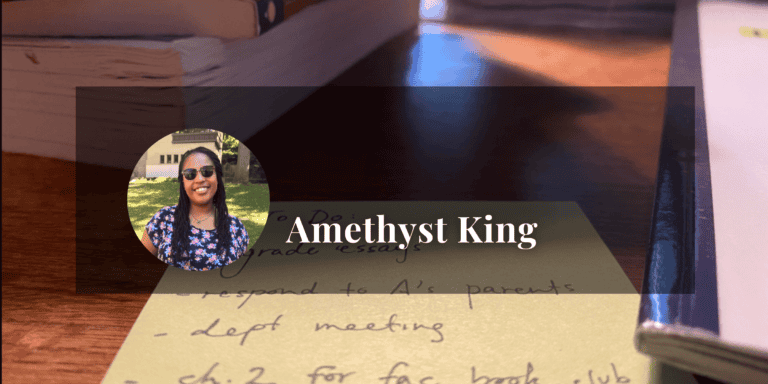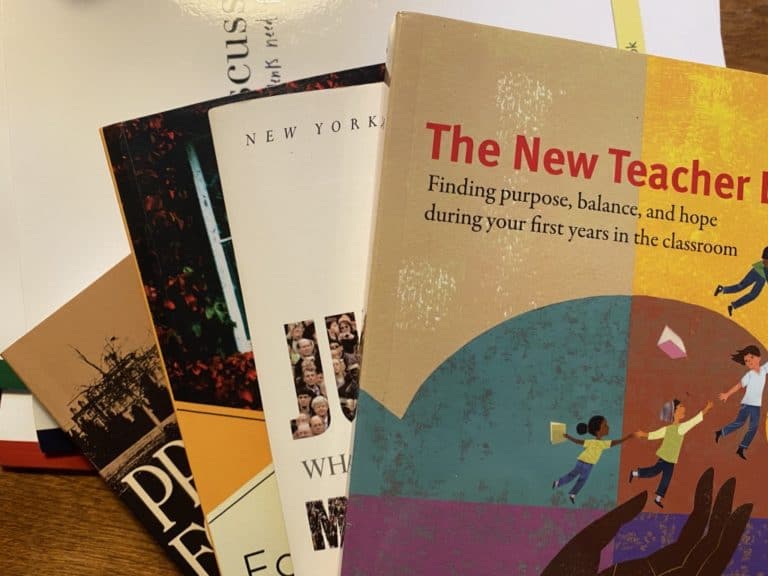Protagonists: 20 minutes with Cally Queally
“I’ve kept that with me as a teacher: I want my students to feel like I believe in them and trust them, that every challenge I give them is designed to lead them to success.”
Information & Inspiration from real teachers, real students & real research

“I’ve kept that with me as a teacher: I want my students to feel like I believe in them and trust them, that every challenge I give them is designed to lead them to success.”

“Education can be really performative, even when it’s called ‘authentic’… one thing I like about Premise is that there’s no need to perform.”

“My middle schoolers are ready for more – more leadership, more say, more experiences – but we often don’t let them do more. There’s so much that educators can do to enhance education in middle school.”

“I’ve learned a lot about respecting [students’] boundaries and finding ways for students to contribute that aren’t verbal, but I do still believe that being able to articulate your thinking is an important life skill.”

Today’s students may not need computer labs, but they do need the opposite. What if schools had spaces dedicated to teaching digital natives how to talk – and actually listen – to each other?

Educators work on social skills every day; students use social media all day. What does it mean to equip them for the futures they hope for?

“When I considered my values or goals for discussion, I realized that my goal wasn’t to have kids speak more, but to encourage them to ask questions, to reference the text more often, to be unafraid to say they’ve rethought and want to follow up with a question.”

A study of Bryn Mawr and Haverford Colleges inspires us to imagine co-creating curriculum with our students.

Preparing to teach on climate change, bias, and Afghanistan this fall.

“We don’t “team teach” but we’re on each other’s team, if that makes sense.”